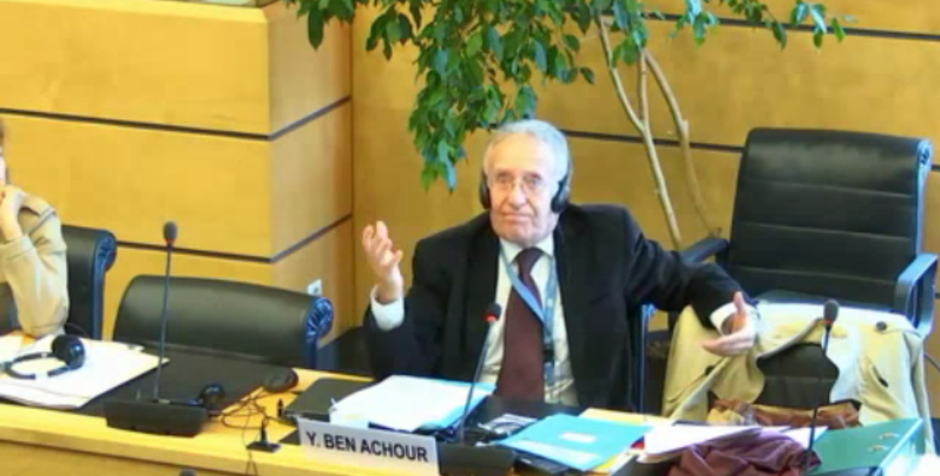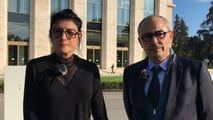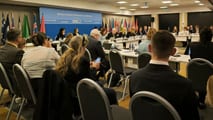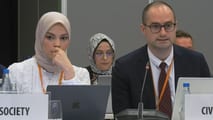
While the Human Rights Committee had just adopted its new General comment, on of the experts, M. Fathalla bravely criticized the so-called right to abortion and explained how it contradicts the right to life.
The mandate of Mrs. Sarah Cleveland, the US expert at the United Nations Human Rights Committee, expired on December 31, 2018. It is good news, as Mrs. Cleveland’s mandate will remain marked by her activism to promote abortion in the name of the right to life.
Indeed, on October 30, 2018 in Geneva (Switzerland), the experts of this Committee adopted an important text: a General comment on Article 6 of the International Covenant on Civil and Political Rights on the right to life. These experts, who are in charge of monitoring the application of the Covenant, did not clarify the rights contained in it, but went beyond their mandate and succeeded in promoting abortion in the name of the right to life for women.
This 70-paragraph text has been under discussion for more than three years by the experts. It abandons every single protection of human life before birth. It also opens the possibility for States to legalize assisted suicide. All of this contradicts the letter and spirit of the 1966 Covenant, ratified in 1992 by the United States.
During the discussions, Ms. Cleveland had, together with Mr. Ben Achour (Tunisia) and Mr. de Frouville (France), managed to dominate all the discussions to promote “safe and legal” abortion by abolishing “any barriers” against its practice.
In a shocking and notable manner, Mr. de Frouville declared that “the right to abortion is at the heart of the right to life” and Mr. Ben Achour had promoted prenatal selection to eliminate children suffering from disabilities before birth.
The ECLJ intervened in these debates by officially presenting its comments and denounced the outrageous statement of Mr. Ben Achour who subsequently apologized, without retracting his statement.
Thus, it was a surprise, which did not have the publicity it deserved, when on October 30, 2018, the day of the adoption of the text, one of the experts publicly denounced this contradiction, breaking the consensus of the Committee under the anxious eyes of the three promoters of unrestricted abortion.
Here is what Mr. Fathalla, the Egyptian expert with whom we agree, said:
“Allow me to state my opinion concerning the issue dealt with in paragraph 8, concerning voluntary termination of pregnancy, in particular the language used in part of this paragraph: “States parties should not introduce new barriers and should remove existing barriers that deny effective access by women and girls to safe and legal abortion.” In my opinion, this language would imply a legalization of abortion without restriction which would by itself deny the right to life to an unborn baby or a fetus and contradict the principle set in paragraph 2 of the general comment: “the right to life is the supreme right which no derogation is permitted.”
Thus, permitting abortion with no criteria, or restrictions, or conditions and leaving such a decision to the free will of a woman and a girl under the cover of respecting their free choice and privacy will lead to the following results. One, giving a priority to the principle of free choice and privacy over the right to life, a supreme right to be enjoyed before speaking of other rights reflected in the Covenant. Two, ignoring all medical proofs that at a certain time of pregnancy the unborn or fetus has a life. Three, depriving the fetus or the unborn baby from the right to life without serious reason to do so and for giving free hand to terminate a life of a fetus or of an unborn baby with no legal reason is considered by itself a violation of the right to life.”
He was then interrupted by a point of order requested by Mr. Ben Achour who vigorously disapproved:
“We are here to consecrate the adoption of a General comment . . . . I do not agree with the fact that one allows himself to do such comments. I wanted to tell you that because I think it goes a little beyond the context in which we are working right now.”
- de Frouville also took the floor to say that “the moment was poorly chosen.” Ms. Cleveland, meanwhile, stared at Mr. Fathalla and said coldly: “I concur in the comments of my colleagues except for those of Mr Fathalla who, I believe, has egregiously abused the spirit of this conversation and the position of chair.”
This incident which occurred on the day of the adoption of this General comment reveals several things:
- The consensus of the Committee was likely reached by weakening the opposition rather than through a true common agreement on a text. The writing of this 24-page comment took more than three years by the Committee. Some have probably lost hope of being heard. Moreover, when we see how much the Egyptian expert shakes when he delivers his statement, the fact that he has waited for so long to do it and when considering the immediate reaction of the other experts, we are led to believe that the experts are not really free to say what they think.
- The contradiction between the International Covenant on Civil and Political Rights and this General Comment is so obvious that the proponents of abortion can’t stand it being stated. This General Comment fortunately has no binding force, as any decision of this Committee. Instead of strengthening its credibility by properly illuminating the letter and the spirit of the Covenant, the Human Rights Committee has promoted abortion; and the scope of this text is now seriously damaged by Mr. Fathalla’s strong statement.
- Pro-life experts need our support. Even if they are often outvoted in committees or assemblies, they must know that they have the support of millions of people; that they should not be afraid to feel alone, because they are not.













